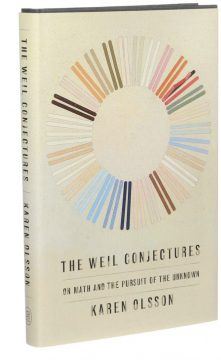Parul Sehgal in the New York Times:
 At the 1994 reception for the prestigious Kyoto Prize, awarded for achievements that contribute to humanity, the French mathematician André Weil turned to his fellow honoree, the film director Akira Kurosawa, and said: “I have a great advantage over you. I can love and admire your work, but you cannot love and admire my work.”
At the 1994 reception for the prestigious Kyoto Prize, awarded for achievements that contribute to humanity, the French mathematician André Weil turned to his fellow honoree, the film director Akira Kurosawa, and said: “I have a great advantage over you. I can love and admire your work, but you cannot love and admire my work.”
This was a lament, not a boast. How austere advanced mathematics can seem to the layperson — a confluence of the intimidating and the irrelevant. It’s easy to forget that math has been vaunted as a source of pleasure, even consolation. In the Symposium, it is described as a source of the most sublime eros, second only to the Platonic ideal of beauty. Late in life, Thomas Jefferson reported that its contemplation was a balm against the despair of aging.
Karen Olsson’s beguiling new book, “The Weil Conjectures,” arrives as a corrective, describing mathematics — its focus, abstraction, odd hunches, blazing epiphanies — as a powerful intoxicant, a door to euphoria.
More here.
